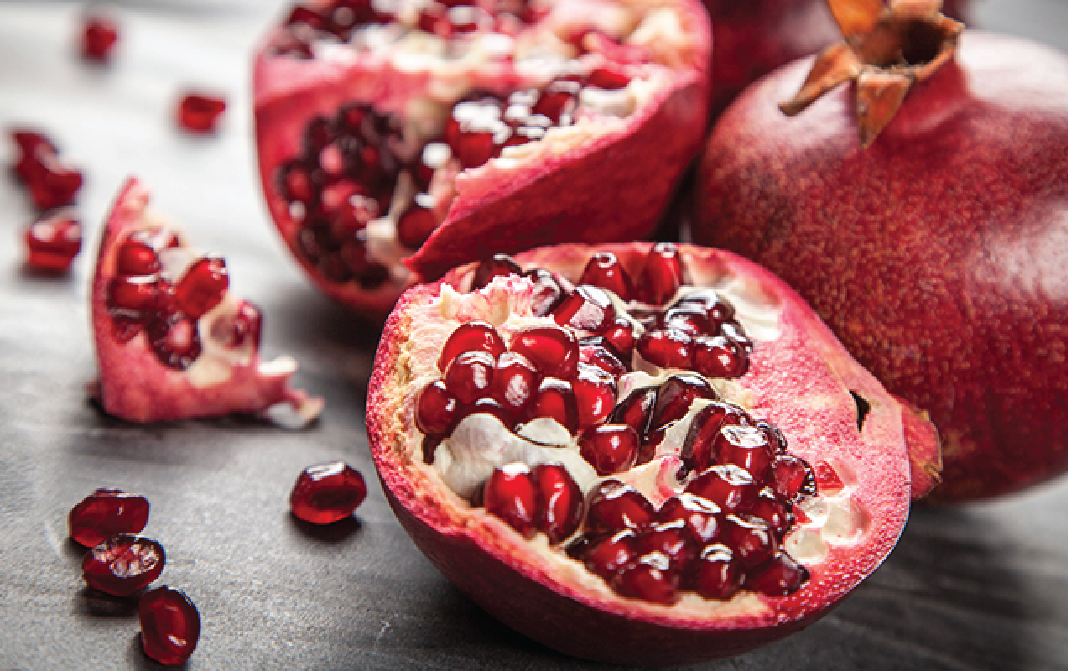


Choose a big pomegranate as the larger ones typically have juicier seeds. Their skin should be leathery in appearance and the color should be deep red. Look for the pomegranates that have smooth, unbroken surface.
People who are allergic to pomegranates should avoid the consumtion of this fruit as it may cause rashes, hives, facial swelling, difficulty in breathing. Overconsumption of pomegranates might cause abdominal pain, diarrhea, bloating, seizures, damage to the liver, or internal bleeding as it contains iron in it.(2)
- Disclaimer
"Information here is provided for discussion and educational purposes only. It is not intended as medical advice or product or ingredient review/rating. The information may not apply to you and before you use or take any action, you should contact the manufacturer, seller, medical, dietary, fitness or other professional. If you utilize any information provided here, you do so at your own risk and you waive any right against Culinary Communications Private Limited, its affiliates, officers, directors, employees or representatives.”
Description
Pomegranates range in color from deep magenta to bright red. The spherical fruits are roughly the size of an apple and they have a thin but tough, leathery skin. They grow on shrubby trees. The interior of pomegranates is filled with seeds, technically called arils. Their seeds are the edible portion. Each seed is enclosed in a translucent, bright red colored pulp. The seeds can be easily and cleanly removed by breaking apart the fruit in four or five pieces. Pomegranate is available in the Northern Hemisphere from September to February and in the Southern Hemisphere from March to May.